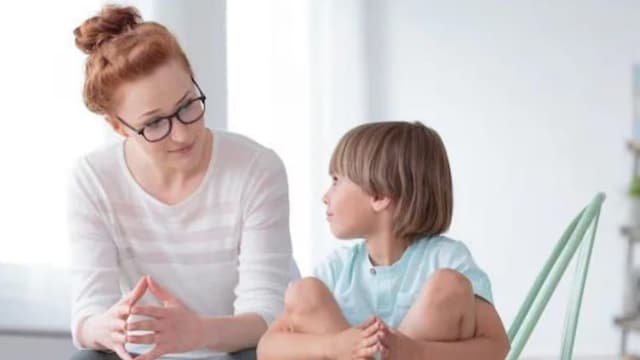Source :NEWS18 NEWS
Last Updated:May 20, 2025, 21:07 IST
When a child hesitates to criticise a friend, even when it’s clear they’re being hurt, it’s a sign that trust and connection matter more to them than comfort.
By listening with empathy, parents can help children build friendships rooted in respect, not fear.
It’s a familiar scene in many homes: a child repeatedly returns to the same group of friends who mock their feelings, exclude them from plans, or make them feel small. Concerned parents often intervene with advice, warnings, or even scoldings. But despite their best efforts, the cycle continues. Why? The answer lies in a child’s deep emotional need for connection, even if that connection causes distress.
Experts say that children, much like adults, crave belonging. And sometimes, the fear of isolation outweighs the pain of staying in a harmful friendship. So how can parents protect their children from the emotional toll of toxic friendships without alienating them further?
Recommended Stories
When a child hesitates to criticise a friend, even when it’s clear they’re being hurt, it’s a sign that trust and connection matter more to them than comfort. In these moments, the most powerful tool a parent has is quiet empathy. Listening without judgment opens a door: it tells children that they are safe. It’s only when children feel emotionally secure that they begin to speak honestly about their experiences.
Many children don’t have the emotional vocabulary to describe what they’re experiencing. That’s why it’s important to guide them through their feelings. Instead of dismissing their hurt with platitudes like “just ignore it,” ask gentle questions: ‘How did you feel when they laughed at you?’ or ‘Did that make you feel left out or embarrassed?’ Helping children recognise and label their emotions allows them to understand that being constantly ignored, mocked, or guilt-tripped by a friend isn’t normal – it’s toxic.
Define What Friendship Really Means
To counter the confusion of unhealthy friendships, children need a clear, consistent understanding of what a healthy relationship looks like. Real friends respect your feelings, support your growth, and celebrate your wins. It’s not just about having fun; it’s about feeling safe and valued. Role-play, storytelling, or even simple examples from your own life can drive this lesson home in an accessible way.
Empower Them to Say “No”
Fear of abandonment can make children feel trapped. Many believe that setting boundaries or saying “no” to a friend means ending the friendship entirely. Parents can play a pivotal role by reframing this fear: ‘Saying no doesn’t make you a bad friend, it makes you a strong one.’ Teach them that it’s okay to walk away from behaviour that feels wrong, and that standing up for themselves is not selfish; it’s essential.
One of the reasons children cling to toxic friendships is a lack of alternatives. If the playground or classroom feels like the only social space they know, the fear of being alone can be paralysing. That’s why it’s important to expose them to new peer groups, art classes, music programs, sports teams, or hobby clubs, where they can meet other children in healthier environments. New friendships often open the door to new perspectives.
Instead of repeatedly telling a child to “stay away” from someone, shift the focus to self-awareness. Equip them with the tools to evaluate relationships on their own. Over time, and with the reassurance of a nonjudgmental parental presence, children begin to trust their instincts, and choose better for themselves.
As parenting coach Kimberly Conicella emphasises, the goal isn’t to control your child’s social world; it’s to be their compass when the emotional terrain becomes confusing.
The Real Work of Parenting
Guiding children through the minefield of peer relationships isn’t always straightforward. But by listening with empathy, teaching emotional literacy, and empowering autonomy, parents can help children build friendships rooted in respect – not fear.
- First Published:
May 20, 2025, 21:07 IST
SOURCE : NEWS 18







